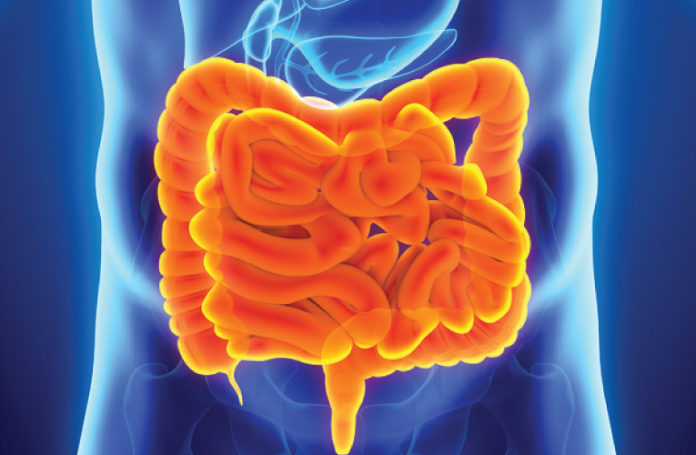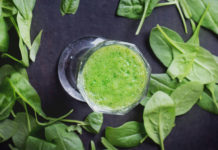If you suffer from IBS, you likely seek any and all possible causes and treatments. Some recent articles suggest that SIBO, small intestinal bacterial overgrowth, may cause IBS.
It remains unclear how closely the two are linked. The World Journal of Gastroenterology reported in 2014 that frequency of SIBO in IBS patients ranged from 4%-78%. That’s quite a wide range, but they compared it with a range of 1%-40% among control groups.
However, if there is a chance that SIBO could be the root of your illness, you may decide it’s worth exploring.
What Is SIBO?
Typically, bacteria in the large intestine (colon) significantly outnumber those in the small intestine. The types of bacteria also vary between the two. When the muscles of the intestines fail to efficiently move their contents in the right direction, bacteria from the large intestine can back up and multiply in the small one.
This process leads to small intestinal bacterial overgrowth or SIBO. The condition may also be called small bowel bacterial overgrowth syndrome (SBBOS). Too many bacteria in the small intestine disrupt digestion and absorption.
Johns Hopkins evaluates more than 600 SIBO cases per year and reports that the condition is especially prominent among post-bariatric surgery patients. This is most likely due to the changes in motility of the GI tract caused by the surgery.
How To Know If You Have It
Common symptoms of SIBO and IBS include:
- Nausea
- Bloating
- Vomiting
- Diarrhea
- Malnutrition
- Weight loss
- Joint Pain
- Fatigue
- Rashes
- Acne
- Eczema
- Asthma
- Depression
- Rosacea
The symptoms of SIBO overlap with those of IBS, so you may not know for certain that you have SIBO. Some clinicians point to signs like low iron levels, celiac disease that is not resolved by a gluten-free diet, or constipation that worsens due to fiber.
A doctor can diagnose it with a breath test. You will drink a sugar solution and then breath into a breathalyzer. The bacteria in your gut give off methane and hydrogen as they digest sugars. So, these gasses show up in your breath as well.
How It’s Connected To IBS
Medscape says, “the suggestion that SIBO may be a causative factor in irritable bowel syndrome and of its constituent symptoms has sparked debate and controversy on the very definition of SIBO.” In other words, researchers don’t fully agree about how SIBO and IBS are connected.
Treatment Options
Naturally, what you take into your digestive tract affects its functioning. If you are already managing IBS with dietary changes, you may be working toward treating SIBO as well. I suggest trying to identify and address any nutritional deficiencies. Medscape explains, “This may involve nutritional support and/or supplemental fat-soluble vitamins, vitamin B12 and minerals.” Your doctor may recommend other dietary changes.
Your doctor may also prescribe antibiotics to modify your gut biome. Doctors often lack consensus on what antibiotics work best and at what dosage. Some that have been tried are ciprofloxacin, metronidazole, neomycin, norfloxacin and doxycycline. The newest product, Xifaxan (rifaximin) is presently the most widely prescribed.
In my practice, I have never treated a patient with SIBO with antibiotics. There are natural treatments which I have found to eliminate, or improve, SIBO very well as I will outline below.
A few pilot studies have explored probiotics as a potential treatment for SIBO. One assessed the effect of Lactobacillus casei on SIBO patients. 64% of patients in the study no longer had a positive breath test after six weeks, but their abdominal symptoms did not improve significantly. Another pilot study showed promise for Lactobacillus casei, Lactobacillus plantarum, Streptococcus faecalis and Bifidobacterium brevis.
Describing the two studies above, Medscape concludes, “Probiotics may have a beneficial effect in this setting, but double-blind, randomised, placebo-controlled trials are essential to demonstrate their dose effects and clinical relevance.”
Johns Hopkins adds, “we have found that herbal treatments can be effective in treating SIBO.”
The above shows that a great deal of research is still ongoing.
My 12 Week, Natural SIBO Protocol
In my experience with patients with SIBO, the first thing I recommend is to eat a “clean” diet. Unwanted dysbiotic bacteria thrive on a poor diet, as do yeast.
Eat plenty of fresh vegetables and fruit. Fresh fish, lean chicken and turkey. Limit lean beef to 1-2 servings a week. Strictly limit processed foods/fast foods/refined sugar. Limit dairy and gluten. Eat organic/free range when possible. Drink at least 8 glasses of pure water daily. No alcohol or tobacco.
Remember that regular daily bowel movements are very important. One bowel movement daily is the minimum I recommend for good health. I recommend 2-3 daily as optimal. The goal here is to keep digested material moving. When not moving regularly, two very common things can occur in the GI tract that can lead to problems: bacterial fermentation and leaky gut syndrome (auto-intoxication).
Moderate exercise 3-4 times a week is very important. Which exercise and for how long will depend on your conditioning, what exercises you prefer, and your doctor’s OK. I generally recommend walking, bicycling, or swimming for 20-30 minutes. As endurance improves, these times may be increased. Exercise helps GI motility.
Very Important Supplements (VIPs!)
- Ultra Probiotic Formula, 1 pack a day with food for 12 weeks. The proper strains and dose of probiotics are very important to colonize and increase the “good” (probiotic) bacteria while reducing the “bad” (dysbiotic) bacteria. Each packet of Ultra Probiotic Formula delivers six important strains totaling 225 billion healthy bacteria to the GI tract.
- Bowel Support Formula, 2 capsules twice a day. The proper type and dose of natural fiber is very important in maintaining regular bowel movements and keeping forward momentum of the GI tract. Significant amounts of added fiber is generally not recommended in those with SIBO, so this is a low amount of unique, natural fiber complex in a 1:1 blend of soluble to insoluble fiber. Remember that SIBO is caused by reflux (splash back) of bacteria from the colon back into the small intestine. We want to keep stool (and bacteria) going in the right direction. Fiber also helps absorb toxins in the GI tract, and by keeping things moving along, reduces the chance of colon cancer, diverticular disease and hemorrhoids. It also reduces cholesterol.
- Foundation Vitamins and Minerals, 3 once a day. SIBO often causes poor absorption of vitamins and minerals. Using a professional grade, ultra-pure product for proper replacement dose and balance is essential.
- Chelated Magnesium, 2 once a day. About 80-90% of the U.S. population is deficient in magnesium. Magnesium is important in over 300 known human enzymatic functions. Among those is the ability to regulate nerve function. This includes nerves controlling the GI tract. By helping the nerves controlling the GI tract, forward momentum is improved.
After the initial 12 week regimen, I recommend changing Ultra Probiotic Formula to Probiotic Formula, 1 capsule a day. This product delivers 6 different important probiotic strains, totaling 20 billion CFUs, to the GI tract. I recommend that Foundation Vitamins and Minerals, Chelated Magnesium and Bowel Support Formula be continued as part of a good health plan.
We are here to help you achieve your health goals!
Dr. Maxwell and his team are available for telemedicine (phone) consultations. You are also welcome to schedule consultations with Dr. Maxwell at our Integrative Medical Center. Please call 513-741-4404 to schedule an appointment.
—
Photo credit: Nerthuz / bigstock.com








